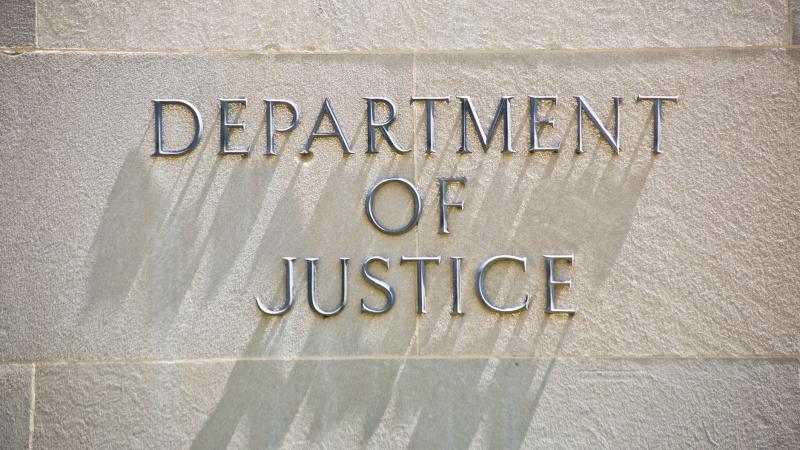Trump snubbed again for Nobel peace prize as historic deal begins between Israel and Hamas
From the success of his first term’s Abraham Accords to the wars and conflicts ended thus far in his second, many have argued for years that the Nobel Prize belongs to Trump.
The awarding committee for the Nobel Prize on Friday again snubbed President Donald Trump for its peace prize even as the latest historic deal he brokered took effect between Israel and Hamas.
The committee in Oslo, Norway gave the award to Venezuelan opposition leader María Corina Machado, crediting her for keeping "the flame of democracy burning amid a growing darkness."
Trump's efforts in the early months of his second presidency to secure numerous deals to lessen conflicts around the world from Armenia to Gaza had led to multiple nominations for the world's top peace prize and accolades from conservatives and even some of his liberal detractors.
Ironically, the Nobel committee's snub came just an hour before Israel began withdrawing troops from Gaza in the first phase of a deal that is expected to result in the release of hostages next week.
According to the Norwegian Nobel Committee's records, 21 Americans have won the Nobel Peace Prize, including four U.S. presidents.
On Wednesday, Israel and Hamas agreed to a U.S.-backed ceasefire deal led by Trump, which put in place a cessation in fighting, freeing all Israeli hostages held by Hamas in the coming days, and pulling some Israeli forces out of Gaza while swapping hundreds of Palestinian prisoners. This step comes after over two years of brutal conflict, with over 1,200 Israeli deaths since Hamas’ October 7, 2023, attack. The nations of Qatar, Egypt, and Turkey also assisted as mediators in the dispute resolution.
Other global conflicts ended or abated by Trump
Trump's global peace powers extend beyond the Middle East and his first-term Abraham Accords. Thus far Trump has significantly de-escalated or fully ended six conflicts, not including Israel's end-stage war with Iran-backed Hamas, averaging over one success a month since May.
In September 2025, Trump announced at the United Nations General Assembly that his administration's diplomacy efforts — leveraging trade incentives — had decisively ended the long-simmering conflict between Serbia and Kosovo, preventing a catastrophic new outbreak and paving the way for peace and prosperity in the Balkans, where long-simmering tensions reached a fever pitch in the last five years.
In August 2025, Trump brokered a landmark diplomatic resolution to another long-simmering dispute between Egypt and Ethiopia over the Grand Ethiopian Renaissance Dam, averting the threat of armed conflict through White House negotiations that secured water-sharing commitments and U.S. investment pledges, ensuring Nile River stability for millions downstream while boosting regional economic ties.
On August 8, Trump mediated the signing of a historic peace agreement between Armenia and Azerbaijan at the White House, formally ending their decades-long Nagorno-Karabakh conflict and establishing normalized relations, though ratification by both nations remains pending.
In July 2025, Trump brokered a ceasefire between Cambodia and Thailand through direct calls to their leaders and threats to halt trade negotiations with each nation unless hostilities ended, halting five days of deadly border clashes that killed at least 35 people and displaced over 260,000, though the truce has since shown signs of fraying amid mutual accusations of agreement violations.
In May 2025, Trump claimed credit for brokering a ceasefire between India and Pakistan following four days of intense cross-border strikes over Kashmir, citing U.S. mediation and trade leverage to avert nuclear escalation, though India maintains the truce was achieved directly through bilateral military channels without third-party involvement.
Other presidential recipients
Theodore Roosevelt earned the prize in 1906 for his mediation of the Treaty of Portsmouth, which ended the Russo-Japanese War, leading negotiations at the Portsmouth Naval Shipyard in Kittery, Maine, to secure an agreement that showcased his powers of diplomacy and marked him as the first American recipient, setting a high standard for the award.
Woodrow Wilson was honored in 1919 for his visionary leadership in founding the League of Nations, promoting international cooperation to prevent future wars through his Fourteen Points, which laid a foundation for modern diplomacy, despite facing significant domestic resistance that limited U.S. participation in the League.
Jimmy Carter received the 2002 prize for his extensive post-presidential work through the Carter Center, tirelessly mediating conflicts in regions like the Middle East and North Korea, advancing human rights, promoting global health, and ensuring fair elections with a sustained commitment that solidified his legacy as a global peacemaker.
Barack Obama was awarded the prize in 2009, just months into his presidency, for his "aspirational" efforts to strengthen international diplomacy and promote a nuclear-free world, highlighted by his Cairo speech fostering dialogue with the Muslim world and nuclear arms reduction initiatives. Critics, however, widely argued the award was premature and lacked concrete achievements and a symbolic gesture for potential rather than tangible results.
The Facts Inside Our Reporter's Notebook
Links
- Nobel Committee
- ABC News
- MSNBC
- CNN
- agreed to a U.S.-backed ceasefire
- 1,200 Israeli deaths
- announced
- Serbia and Kosovo
- dispute between Egypt and Ethiopia
- Grand Ethiopian Renaissance Dam
- Armenia and Azerbaijan
- Cambodia and Thailand
- U.S. mediation
- earned the prize in 1906
- honored in 1919
- League of Nations
- Fourteen Points
- received the 2002 prize
- prize in 2009
- argued














